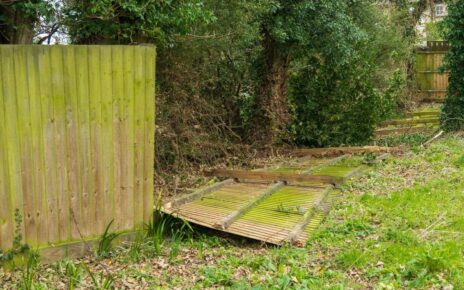BUGS are obviously going to be in your garden no matter what – especially during the summertime.
But left unchecked, creepy crawlies can completely destroy your hard work.


Fortunately, gardening experts at The Greenhouse People have revealed the top natural remedies to get rid of the most damaging creepy crawlies.
BUG BEAR: Crane flies
You may also know them as Daddy-Long-Legs, the mosquito's cousin luckily doesn't bite humans but they are partial to your lawn.
If your grass becomes patchy and discoloured, then you should check your soil, reports the Express.
Crane fly larvae, also known as Leatherjackets, get stuck into the roots of grass, weakening the turf and killing large patches of grass.
READ MORE GARDENING HACKS

I’m a gardening expert – how to banish ants from your plants using kitchen items

Six tips to save your lawn in the heat WITHOUT watering over & over again
They can be treated in late spring and autumn as they come up to the soil surface, or in late summer as crane flies hatch their eggs.
To prevent the cycle from happening again, keep the grass cut short and avoid over-watering as these creepy crawlies love moist conditions.
“You can also try adding an acidic lawn nutrient such as iron sulphate, which will help strengthen grass while deterring crane flies," say the gardening experts.
BUG BEAR: Aphids
Aphids are tiny little bugs that have long antennas and two stalks shooting out of their abdomen.
Most read in Fabulous
A TOTAL FLOP 
I spent £160 on an Argos returns pallet – I was in hysterics when I opened it

Woman shares easy hack to cool your house during the heatwave

I’m an ex McDonald’s worker – you might want to think twice about ordering fries

I'm a size 14 – the three styles of skirt that flatter midsize figures
An excess of these pear-shaped bugs can destroy your plants and encourage fungal growth.
To check whether you have an infestation of them – look out for yellowing or curling leaves, distorted flowers or fruit, and black leaves or stems.
If you do, make your own insecticide by mixing washing up liquid, vinegar, and water together and spraying generously over your plants to kill the bugs.
BUG BEAR: Spider mites
Spider mites are so small you're more likely to spot them from the fine webbing and mottling on the leaves they leave behind.
These creepy crawlies thrive in hot, dry climates, so make sure to mist your plants regularly and leave bowls of water around to create more humidity.
Essential oils like peppermint and lemon are toxic to spider mites, so add a few drops to the water to help banish them for good.
BUG BEAR: Vine weevils
These pesky bugs often lurk on plant fruits and potted plants – munching away at leaves and ruining your plants.
Adult weevils are long and dull black with yellow marks on their back, while the grubs are a pale yellow and are usually found among roots.
The grubs can destroy roots in the autumn and winter months, ultimately killing the plant if not caught in time.
The Greenhouse People said: “Weevils are an important source of food for many critters in your garden, so try to avoid using pesticides. Rather prune affected leaves regularly and look out for grubs around the roots."
Instead encourage predators into your garden to keep the population under control, such as frogs or birds.
BUG BEAR: Box tree caterpillars
The Greenhouse People said: "Box tree caterpillars get their name because of their preference for box plants, commonly used as hedging.
“You can identify these caterpillars by their green colouring with black and white spots or from the webbing on leaves.”
While some caterpillars are totally harmless, the box tree caterpillar can destroy your plants.
Read More on The Sun

Woman shares easy hack to cool your house during the heatwave

My wedding dress cost £3k & I hated it – I cried so hard my lashes fell off
The best way to get rid of these pests is to pick them off by hand.
The gardening experts said you could use a pheromone trap to attract males and stop them from reproducing.
Gardening tips and hacks

How to transform your garden on a cheap budget
How to preserve your favourite flowers at home – 5 easy tips explained
Which plants should I be wary about my dog being around?
When is the best time to prune roses?
When should I start planting daffodil bulbs?
How high can a garden fence be and can it be taller than my neighbours?
What colour fence paint makes a garden look bigger?
Will my garden plants still grow if my backyard doesn't receive any sun?
Source: Read Full Article

